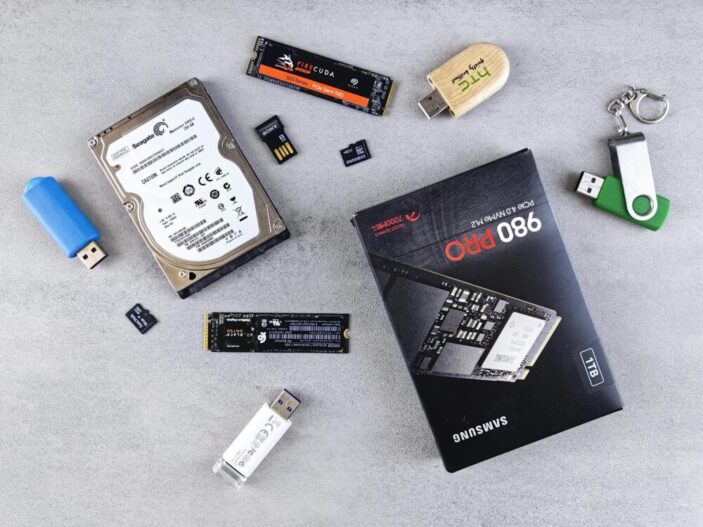
Losing data from an external hard drive can be a nightmare. Whether it’s a project you’ve been working on for ages, collections of personal photos and memories, or copies of your favourite movies and television shows, losing your data feels devastating. If this has happened to you, don’t panic, we’ve got some tips and tricks to get you reunited with your files in no time.
First, you’ll want to steer clear of the following to ensure data recovery is possible:
Disregarding Cautionary Signals
Continuing to use your drive, despite it showing signs of potential failure, can result in even more data being lost.
Overwriting Data
By overwriting old data with new data, the original data will usually be permanently lost.
Reformatting The Drive
Reformatting your external drive can cause data from your drive to be deleted permanently. Avoid doing this until your files are fully recovered.

Now, let’s talk about a few tried and true methods of recovering files once they’ve been lost:
Hard Drive Recovery Software
The quickest, and arguably easiest way to recover your lost files, is to use professional data recovery software such as Stellar Data Recovery Professional for Windows. This software is also available for Mac Data Recovery. Software such as these will aid in recovering lost photo, video, document, email, audio files and more, covering all data loss scenarios from lost or deleted files to rebootable recovery from crashed windows.
Check your Recycle Bin
Did you that know that in addition to your computer, your external hard drive also has a Recycle Bin? Try plugging in your external hard drive and selecting the Recycle Bin to recover your data. Providing you haven’t permanently emptied your Recycle Bin in the last little while, it could be that your files are simply sitting there, ready to be recovered.
Plug the hard drive into a different computer or USB port
A common misconception when a drive breaks down is that the issue must fall within the drive itself, however, it could be that the issue lies with your computer failing to recognise it. Try plugging your drive into a different computer or port to see if it’s a computer-specific issue. USB ports can often develop issues due to faulty cables, debris build up or even a power issue with your computer.

Losing data from your hard drive can be a highly stressful experience, especially when it involves important work or cherished memories. To minimize the risk of this happening again, we suggest the following strategies:
Look For Signs
As soon as your drive begins to show signs of failure such as slow performance, error messages, loud noises, etc., stop using the drive immediately and get it repaired.
Backup Strategies
Always consider saving your files in multiple places to ensure files aren’t permanently lost. We recommend choosing at least 3 places such as your computer hard drive, an external drive, and the cloud.
Don’t Block Cooling Vents
Proper airflow is crucial to prevent drives from overheating. Ensure that the vents are clear and unobstructed to keep everything running smoothly.
So, whether you’ve just lost some important work, or you feel your hard drive is on the cusp of failure, be sure to follow the above steps immediately. Software like Stellar Data Recovery Professional for Windows reliable tools are designed to recover data from system crashes, formatting problems, accidental deletions, virus attacks, partition loss, drive errors, and more.
